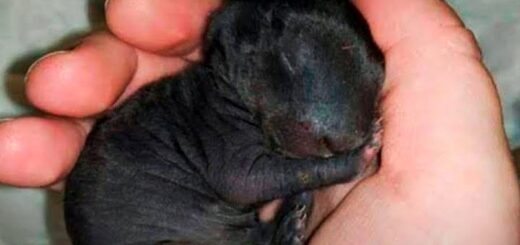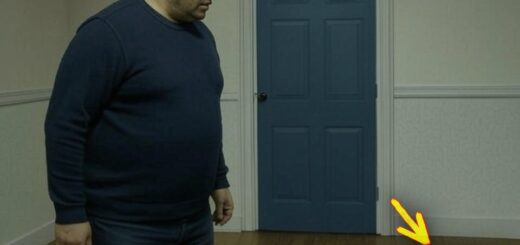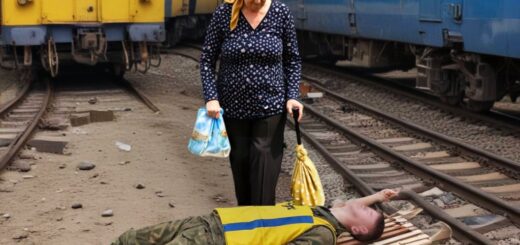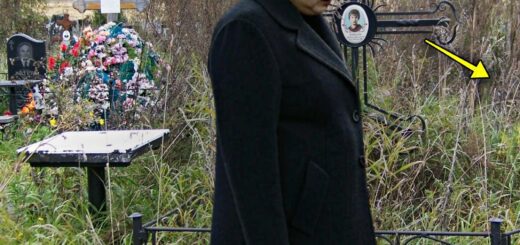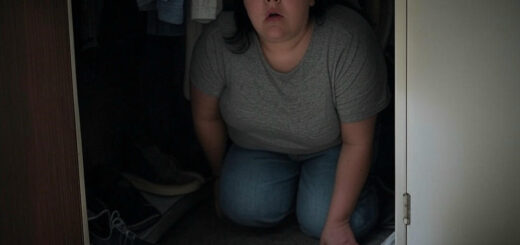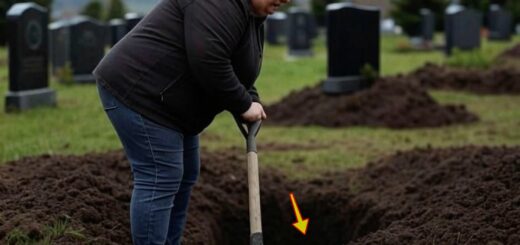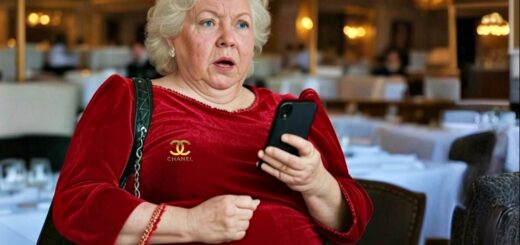Husband abandoned his disabled wife in the forest, unaware that a mysterious man was watching everything
For the first time since her wheels touched that forest floor, Emma Johnson believed she might.
Morning came gray and sharp. The clouds hung low over the treetops, unmoving. Emma awoke to the smell of coffee and the hum of Chris’s truck idling outside. She didn’t call out, didn’t need help. She eased herself into the wheelchair Chris had retrieved from the clearing and rolled into the main room. The fire was out, but warmth still clung to the wood-paneled walls. A mug waited for her on the table, steaming, with a yellow sticky note in blocky handwriting: Went to town. Back in an hour. Locked the door.
Emma smiled despite herself. Still cautious, still careful. She sipped the coffee slowly, then wheeled herself to the far end of the cabin, where Chris had set up a small desk. A battered laptop and a portable router sat on it. To her surprise, the signal was strong.
She opened the browser and stared at the blank search bar. After a moment, she typed: Michael Johnson, missing wife.
The results were immediate and predictable. A photo of her, older, post-accident, appeared next to a headline: Local Attorney Seeks Help Finding Disabled Wife Missing from Rural Retreat. Her stomach turned. She clicked through. Michael’s face filled the screen, solemn and anguished, his hair perfectly tousled, his suit impeccable.
“She was having a hard time adjusting,” the article quoted him. “We thought time away might help, but I never imagined she’d vanish.”
The reporter’s tone was sympathetic. There was even a brief video. In it, Michael looked directly into the camera: “Emma, if you’re watching this, please come home. We can get through this.”
Emma slammed the laptop shut. Her hands trembled, not with fear, but with fury. He was spinning it perfectly—concerned husband, overwhelmed wife. He didn’t think she’d survive—not just the forest, but the shame, the disbelief, the story he was crafting.
But here she was.
The door opened. Chris stepped in, brushing snow from his shoulders. “You okay?” he asked immediately, sensing her tension.
She turned the chair to face him. “He’s already gone to the media.”
Chris’s jaw tightened. “Of course he has.”
“He’s painting me as unstable, broken, depressed.”
Chris walked over and set a brown paper bag on the table. “Then we hit back before he finishes his version of the story.”
She raised an eyebrow. “With what? It’s his word against mine.”
“Not entirely.” He pulled out a phone—not hers—and laid it on the table.
Emma stared. “Whose is that?”
“Yours, sort of. I set it to record before I picked you up yesterday. Left it running in my jacket.”
Her eyes widened. “You recorded the clearing?”
“Everything from when I found you to when we got to the truck. I figured I might need proof of what I saw.”
She blinked, speechless.
“I haven’t listened to it yet,” he said. “Didn’t want to cross a line.”
Emma reached for it slowly. “You didn’t. You saved my life. And now you might save the truth.”
Chris nodded. “We’re going to need more, though. If he’s already leaning on his connections, we need someone who knows how to hit back legally.”
“You know someone?”
Chris gave a dry smile. “I used to run surveillance for the state police. I know a few people who still like pissing off lawyers.” He reached into his coat and pulled out a second phone. “This is a burner. Use it to text only. Untraceable. Encrypted.”
Emma held it, stunned. “Jesus. What kind of retirement are you in?”
“The quiet kind.” Then, more seriously, “I didn’t bring you here just to hide, Emma. I brought you here to buy time, to build a case.”
Her voice was quiet. “What if the case isn’t enough?”
He met her eyes. “Then we go public, but we do it our way.”
They sat in silence for a while. Eventually, she said, “I need access to my old email, the one Michael doesn’t control.”
Chris nodded. “Let’s dig.”
For the next hour, Emma walked him through every old password she could remember. They recovered her backup Gmail, linked to a forgotten design portfolio. Inside were dozens of emails from clients, suppliers, even her former assistant—all addressed to her. Proof she had run the business before Michael took over.
Chris flagged the most relevant ones, downloading copies and saving them to encrypted drives.
Then, a break. While Chris made lunch, Emma wheeled herself to the back window. The trees stood still outside—no wind, no sound, just snow and the waiting silence of the high country. She frowned. In the distance, near the trailhead, she saw it: a fresh tire track and a dark shape, maybe a bootprint, that hadn’t been there that morning.
She didn’t panic. She backed away from the window. “Chris,” she said, voice steady. “I think someone’s been near the cabin.”
He didn’t ask how she knew. He just moved—quiet, fast, efficient. He checked the perimeter and confirmed what she saw. “Too fresh to be mine,” he said. “And no reason for anyone else to be up here.”
“Could it be Michael?”
Chris shook his head. “He wouldn’t come this far without a plan. He doesn’t know where you are yet, but someone else might be looking.”
Emma’s stomach turned. “What do we do?”
Chris’s voice was low, certain. “We stay smart. We stay ahead. And we don’t make the next move until we’re ready to end this.”
Emma nodded. For the first time in months, she wasn’t waiting to survive. She was preparing to fight back.
By the time the sun began to slip behind the ridge, the cabin was glowing with the quiet intensity of purpose. The desk was cluttered with notepads, flash drives, old email printouts, and two laptops humming in the background. Emma sat at the center of it all, focused, sharper than she’d felt in months.
“This is what I remember,” she muttered, clicking through archived files. “This version of me.”..

